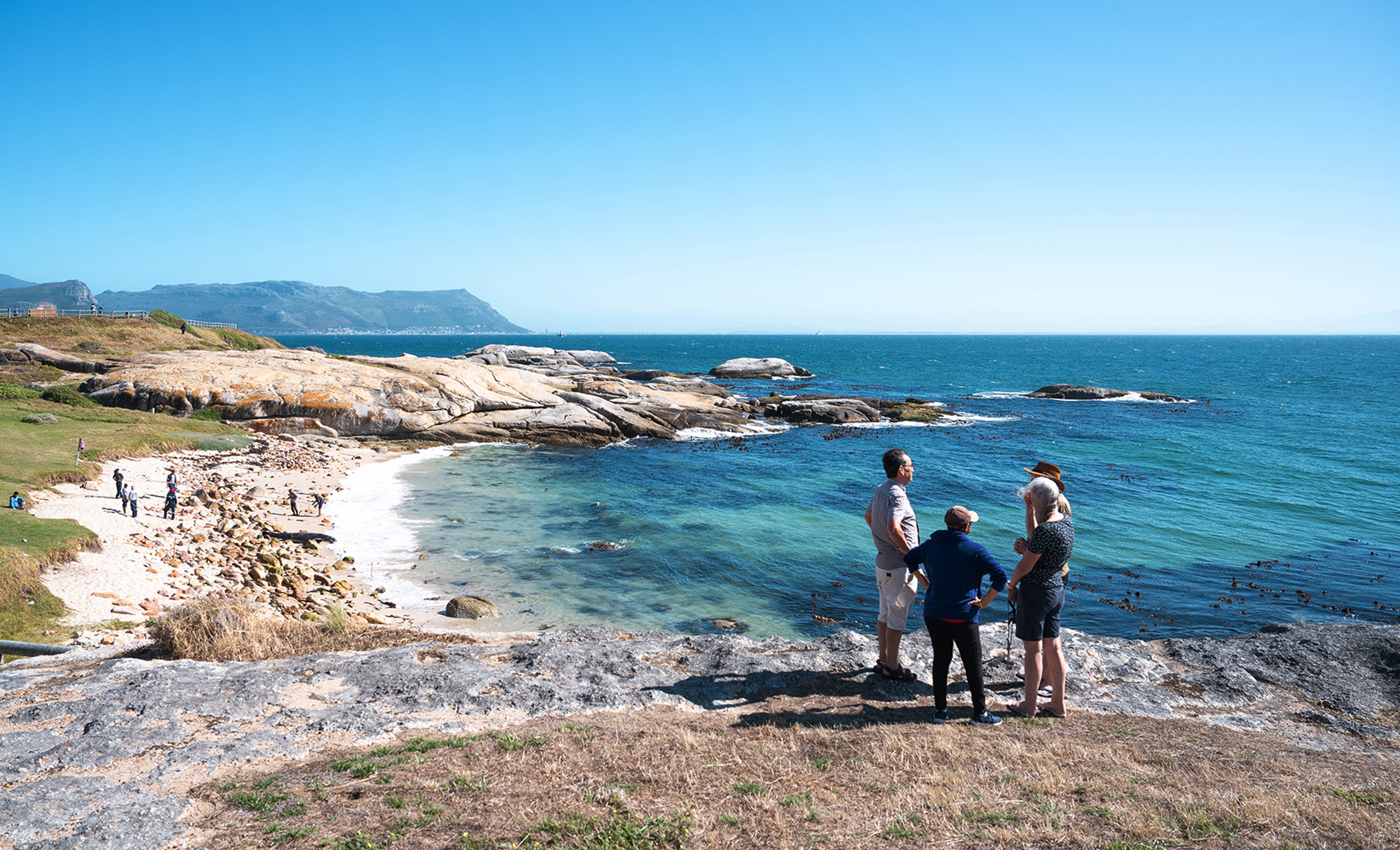Pilot whales are social creatures, and their strong bonds often cause entire groups to strand if one member becomes disoriented. The reasons for pilot whales losing their way include navigation errors, illness, and environmental disturbances.
 The city's coastal team carefully turned the whale on its side to investigate for any potential signs of trauma or injury. No evidence of a ship strike or outside blunt force was discovered, leaving the cause of death unknown. (Photo: Gunnar Oberhösel)
The city's coastal team carefully turned the whale on its side to investigate for any potential signs of trauma or injury. No evidence of a ship strike or outside blunt force was discovered, leaving the cause of death unknown. (Photo: Gunnar Oberhösel)
 A stranding like this is rare — it naturally draws a crowd of curious locals and tourists. (Photo: Gunnar Oberhösel)
A stranding like this is rare — it naturally draws a crowd of curious locals and tourists. (Photo: Gunnar Oberhösel)
 Shark Spotters standing around the pilot whale, discussing how to move it from the shoreline. With an estimated weight of 1,200 to 1,500 kilograms, the task is a physically demanding one. (Photo: Gunnar Oberhösel)
Shark Spotters standing around the pilot whale, discussing how to move it from the shoreline. With an estimated weight of 1,200 to 1,500 kilograms, the task is a physically demanding one. (Photo: Gunnar Oberhösel)
 The whale's face shows streaks of blood, probably caused by being washed over rocks before coming to rest. (Photo: Gunnar Oberhösel)
The whale's face shows streaks of blood, probably caused by being washed over rocks before coming to rest. (Photo: Gunnar Oberhösel)
 A close-up of the pilot whale’s teeth reveals its adaptation for deep-sea hunting. These teeth are essential for catching squid, their primary prey, during dives that can reach depths of 600 to 1,000 metres. (Photo: Gunnar Oberhösel)
A close-up of the pilot whale’s teeth reveals its adaptation for deep-sea hunting. These teeth are essential for catching squid, their primary prey, during dives that can reach depths of 600 to 1,000 metres. (Photo: Gunnar Oberhösel)
The last time Cape Town experienced a mass stranding was in 2009, when 55 pilot whales were stranded on Kommetjie Beach, and in 2013, 19 pilot whales beached at Noordhoek Beach, with many dying despite rescue efforts.
Short-finned pilot whales (Globicephala macrorhynchus) are typically found in warmer tropical and subtropical waters, occasionally venturing into deeper offshore areas near South Africa. By contrast, long-finned pilot whales (Globicephala melas) prefer cooler temperate waters and are more commonly found closer to the southern tip of Africa, particularly in the nutrient-rich Benguela Current region. Both species are well-adapted for deep-sea hunting, relying on their ability to dive to significant depths in search of squid and other prey. DM




 A close-up of the pilot whale’s teeth reveals its adaptation for deep-sea hunting. These teeth are essential for catching squid, their primary prey, during dives that can reach depths of 600 to 1,000 metres. (Photo: Gunnar Oberhösel)
A close-up of the pilot whale’s teeth reveals its adaptation for deep-sea hunting. These teeth are essential for catching squid, their primary prey, during dives that can reach depths of 600 to 1,000 metres. (Photo: Gunnar Oberhösel) 